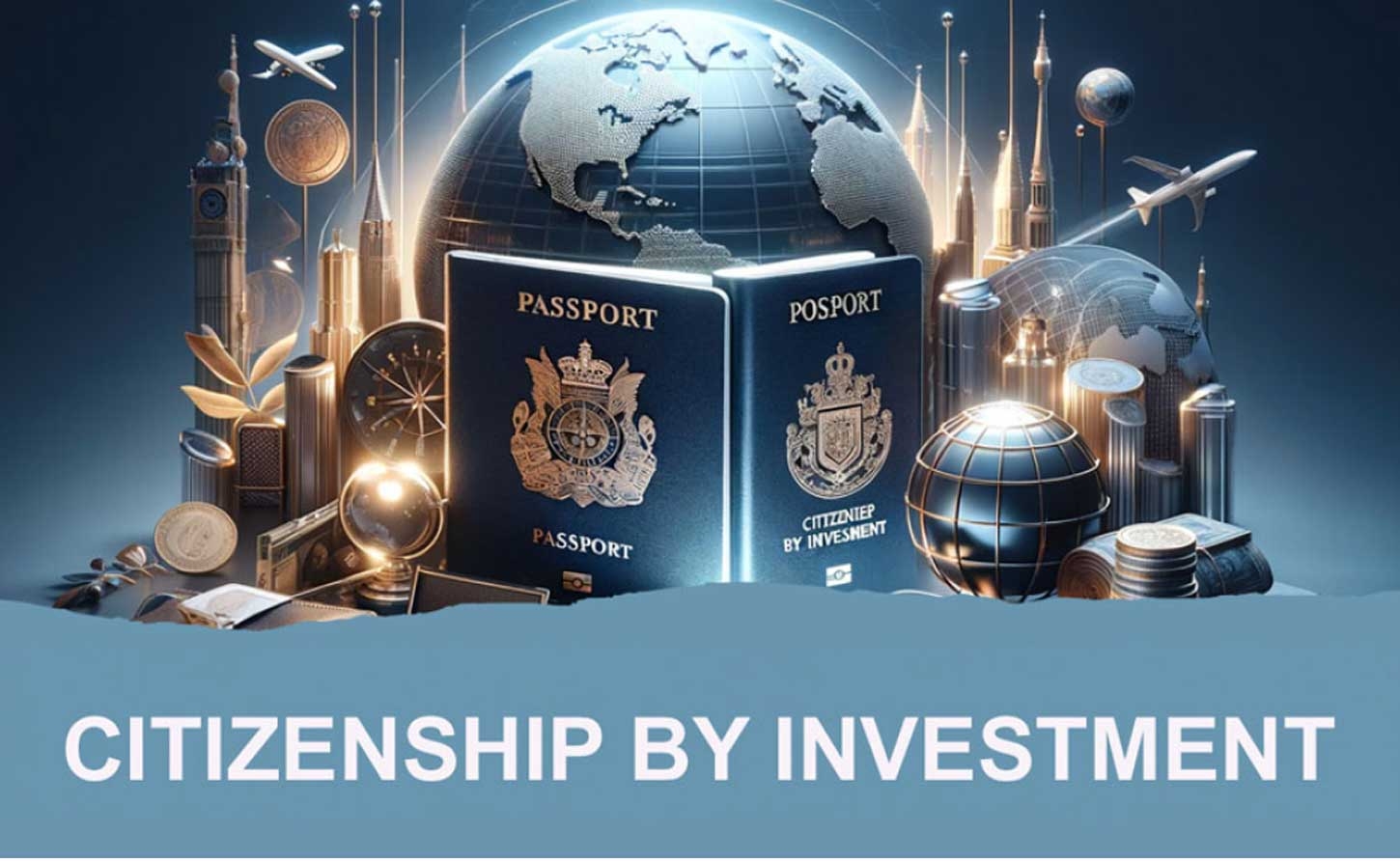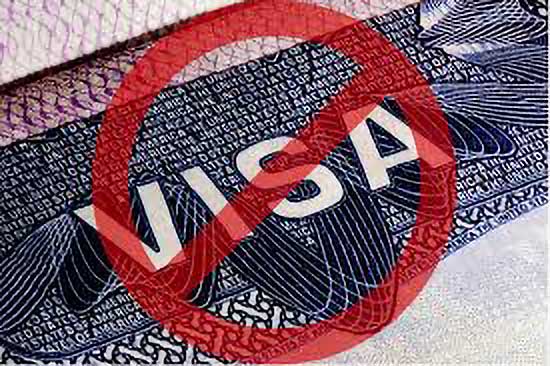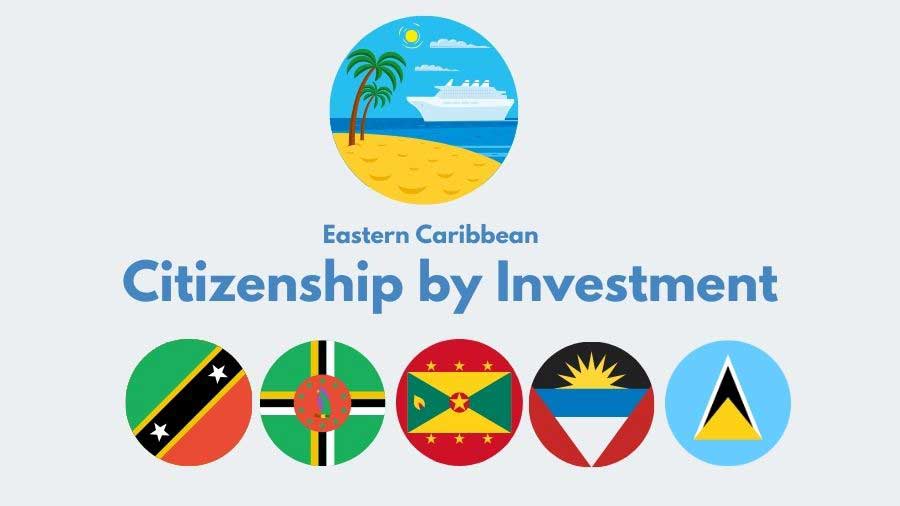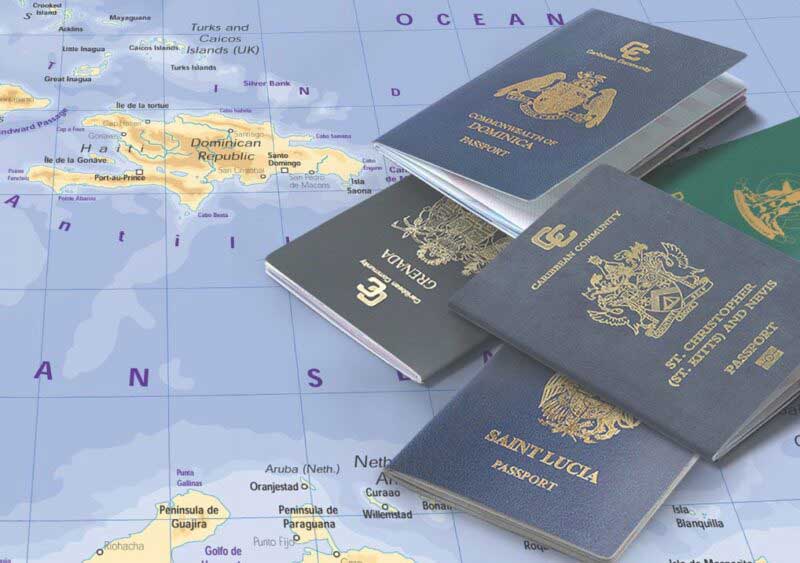CARIBBEAN | Some OECS Nations Facing Possible U.S. Visa Ban Over CIP

MONTEGO BAY, Jamaica, June 16, 2025 - Four Caribbean nations that have long sold the promise of tropical citizenship to wealthy foreigners now find themselves caught in a diplomatic connundrum of their own making, as a result of the infamous yet profitable but controversial Citizenship By Investment Programme.
According to the Washington Post, a leaked U.S. State Department memo signed by Secretary of State Marco Rubio has thrust Antigua and Barbuda, Dominica, St. Kitts and Nevis, and St. Lucia onto America's travel watchlist, marking a dramatic escalation in Washington's war against what critics call "passport mills."
The memo, circulated to U.S. diplomatic missions over the weekend, represents more than bureaucratic saber-rattling—it's an existential threat to small island economies that have built their financial futures on the controversial practice of selling citizenship to the highest bidder.
For nations where tourism revenues can vanish with a single hurricane season, these Citizenship by Investment Programs (CBI) have become economic lifelines. In St. Kitts and Nevis, the program contributes more than 20% to its GDP.
 The Golden Goose Under Fire
The Golden Goose Under Fire
The essence of Washington's concern is deceptively simple: these countries are selling passports to foreigners through cash-for-citizenship programs without requiring them to actually live in the countries that issue their passports. But the implications run deeper than administrative convenience. U.S. officials worry that these schemes create backdoors for individuals from "risky or sanctioned countries" to circumvent American immigration controls, potentially allowing money launderers, tax evaders, and worse to slip through the cracks.
The State Department's ultimatum is stark in its brevity: fix your programs within 60 days or face the consequences. Countries willing to accept third-country nationals deported from the US, or to enter a so-called "safe third country" agreement, may be able to reduce the risk of sanctions. The subtext is unmistakable—bend the knee or watch your citizens' mobility evaporate.
What makes this particularly pointed is the timing. The development follows a June 4 presidential proclamation by Trump that fully restricted the entry of individuals from Afghanistan, Myanmar, Chad, Republic of Congo, Equatorial Guinea, Eritrea, Haiti, Iran, Libya, Somalia, Sudan and Yemen. The Caribbean nations now find themselves grouped with countries facing various forms of U.S. travel restrictions—a diplomatic humiliation for nations that pride themselves on their democratic traditions and Western orientation.
The Economics of Desperation
To understand why these Caribbean nations embraced passport sales so enthusiastically, one need only examine their economic realities. Caribbean citizenship by investment programs are among the fastest CBI programs in the world, as one can get a Caribbean passport within 6 months. For cash-strapped governments watching traditional industries like sugar and bananas decline, these programs offered a seductive solution: instant revenue with minimal infrastructure investment.
St. Kitts and Nevis blazed the trail, pioneering the concept just a year after gaining independence in 1984 to reduce its reliance on the dominant sugar industry. The model proved irresistible to regional neighbors. Soon, Dominica, Grenada, St. Lucia, and Antigua and Barbuda had launched their own versions, creating what critics would later deride as a regional race to the bottom.
The financial incentives are undeniable. The five Caribbean nations recently standardized their minimum investment across all programs to $200,000 by 30 June 2024, though individual programs can command much higher sums. For small nations with populations barely exceeding major American suburbs, even modest volumes of citizenship sales can translate into significant budget windfalls.
 A Global Backlash Brewing
A Global Backlash Brewing
The American pressure campaign doesn't exist in isolation. Discomfort has been growing in the EU, the US, and the UK regarding this practice, due to concerns about inadequate due diligence checks, a lack of transparency, and insufficient oversight. The European Union has been particularly aggressive, implementing mechanisms that could strip visa-free travel privileges from CBI nations and pressuring some to abandon their programs entirely.
The EU Commission has proposed regulations that would make the visa suspension mechanism easier to trigger, arguing that citizenship by investment poses a threat to "the public policy or internal security of the member states". This threat encompasses organized crime infiltration, money laundering, tax evasion, and corruption—charges that CBI-offering nations vehemently deny but struggle to definitively refute.
The international community's concerns aren't entirely unfounded. While Caribbean governments emphasize their due diligence procedures, in rare cases, lax vetting has allowed individuals of questionable backgrounds to obtain passports and travel visa-free to countries in Europe and North America. Even isolated incidents can undermine confidence in entire programs, creating a perception problem that threatens the model's viability.
Scrambling for Credibility
Recognizing the gathering storm, Caribbean leaders have embarked on a desperate campaign to rehabilitate their programs' reputations. The five Caribbean nations offering citizenship by investment signed a comprehensive Memorandum of Understanding (MoU) aimed at integrating critical elements of their programs, attempting to present a united front against international criticism.
Officials say the goal was to implement harmonized legislation across participating nations to improve vetting procedures and address concerns over lax due diligence. The reforms include enhanced background checks, mandatory interviews for applicants, and improved information sharing between nations—measures that governments hope will satisfy international critics.
Yet skepticism remains about whether these cosmetic changes can address fundamental concerns about the model itself. St. Vincent and the Grenadines Prime Minister Ralph Gonsalves, whose country has resisted joining the CBI bandwagon, warned: "I'm opposed in principle and practice. It's reckless to base national finances on selling citizenship". His prescient observation that "the writing is on the wall" for additional travel restrictions now appears prophetic.
The High Stakes Gamble
The current crisis illustrates the dangerous dependency these nations have developed on what amounts to a form of economic gambling. When a significant portion of national revenue depends on the goodwill of foreign partners and the continued attractiveness of passport privileges, governments find themselves hostage to external political winds beyond their control.
The American ultimatum forces a stark choice: fundamentally restructure programs that have become integral to national budgets, or risk seeing citizens face travel restrictions that could devastate tourism and business relationships. For nations where a single major partner's policy shift can trigger economic crisis, the CBI model reveals itself as both salvation and potential ruin.
Caribbean leaders' responses have ranged from defiant to conciliatory. Dominica's Prime Minister Roosevelt Skerrit said they had been in talks with the U.S. since 2023 and hadn't yet received the formal notice. Antigua and Barbuda sent a diplomatic reply saying they already follow strict checks and U.S. sanctions. The careful diplomatic language cannot mask the underlying anxiety: these nations understand they are negotiating from a position of weakness.
 The Broader Implications
The Broader Implications
Beyond the immediate diplomatic crisis, the Rubio memo represents a broader recalibration of American immigration and security policy. The Trump administration's aggressive stance on travel restrictions reflects a zero-tolerance approach to perceived security vulnerabilities, regardless of their actual magnitude or the collateral damage to allied nations.
The inclusion of Caribbean democracies alongside countries like Syria and Zimbabwe on the same watchlist sends a pointed message about America's willingness to punish allies who fail to align with Washington's priorities. It also highlights how small nations' survival strategies can become geopolitical liabilities in an era of heightened security consciousness.
For the global citizenship industry, the Caribbean crisis serves as a cautionary tale about the sustainability of business models built on regulatory arbitrage. Companies like Henley & Partners also make money acting as agents for passport sales, creating an entire ecosystem dependent on maintaining the delicate balance between national sovereignty and international acceptability.
An Uncertain Future
As the 60-day deadline approaches, Caribbean leaders face an impossible choice between economic pragmatism and political sovereignty. The reforms demanded by Washington—residency requirements, enhanced background checks, improved document security—could fundamentally alter programs' attractiveness to the wealthy clientele who currently drive their success.
Yet the alternative—facing visa restrictions that could isolate their citizens and devastate their economies—presents an equally unpalatable outcome. The memo's implicit message is clear: small nations can maintain their sovereignty only within boundaries acceptable to more powerful partners.
The Caribbean CBI crisis ultimately reflects broader questions about globalization's winners and losers. For small island states seeking economic diversification in an increasingly volatile world, selling citizenship represented an innovative solution to structural disadvantages. But as geopolitical tensions rise and security concerns multiply, such innovations face growing scrutiny from powers who view them as threats rather than opportunities.
What seems certain is that the era of uncomplicated passport sales is ending, replaced by a more complex reality where economic necessity must balance against geopolitical acceptability. For nations whose survival depends on threading that needle, the stakes could not be higher.
-30-
